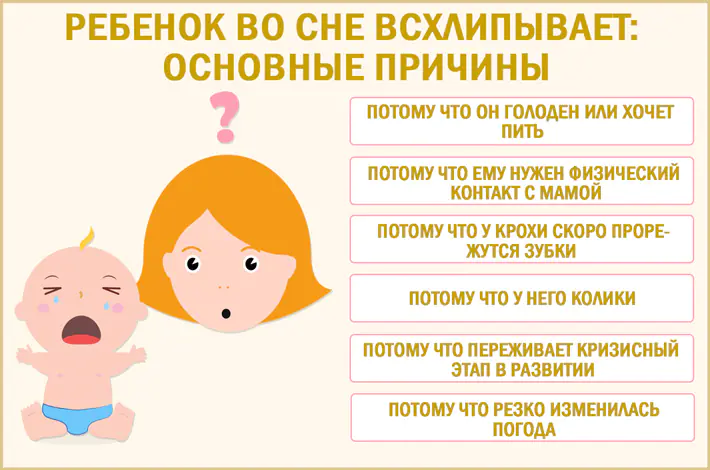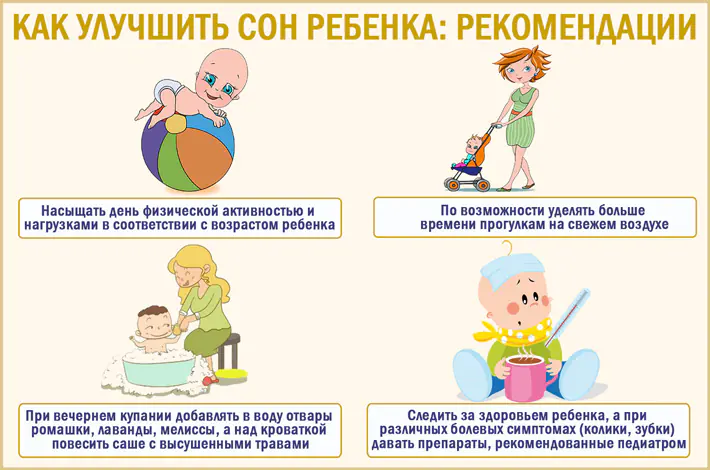


I gave Nurofen at your age 2.5 mm. for the night. no more than 5 days. I smeared my teeth with Kalgel or Dentinox gel. Everything helped us!
sobs after hysterics. I can sob like this for an hour or 1.5. Don't worry

Have you tried applying Cholisal? mine sometimes sobs in pain in my sleep

Nurofen MUST be given in the required dosage, otherwise it simply will not work, the peculiarity of Nurofen is that you just pour the medicine into the stomach, and there is no harm and no effect, that makes sense. The doctor said that Nurofen is a drug that you can’t take half a tablet and only have a little effect, no, the dosage is wrong and there is NO effect at all.
As for teeth, strength and patience for your baby and you. Try using a course of Viburkol suppositories, a course of 5-7 days, they have a cumulative effect, you must complete the entire course, one suppository will not have any effect. Candles need to be lit at approximately 19.00, i.e. 1-2 hours before bedtime, because During the first 40-60 minutes of resorption, the effect is slightly stimulating, but then the pain goes away very well. In acute moments, use Nurofen or 2.5 ml syrup. Apply Kamistad, but rarely, it is contraindicated for small children, because... the percentage of icecoin there is 10 times higher than, for example, in Kalgel. That is, when it was completely impossible, I had terrible hysterics or didn’t sleep for a very long time because of my teeth, I applied Kamistad once a day.
In the first weeks and even months of their lives, babies express their desires by crying. Based on its character and intensity, an experienced mother is able to instantly determine what the baby wants. But if a child sobs and sighs in his sleep, then parents often tend to look for the reasons in hidden illnesses or some kind of health disorder. Meanwhile, these conditions can be caused by other factors that have a completely simple explanation.
Sleep structure in children and adults: distinctive features
To understand why a child sobs in his sleep, it is necessary to understand the structure of children's sleep and its distinctive features. Any life activity of an adult, as well as a baby, is based on the cyclical nature of processes called biorhythms. For each of us they are individual and are laid before birth.

This stage can be determined by shallow breathing, barely covered eyelids, trembling eyelashes and moving pupils under them. It is during this period of time that processes of formation, development and information processing that are important for a fragile organism occur.
Children's night sobs during sleep
During fast-wave sleep, the brain remains active, which allows the baby to see vivid dreams. Emotions that arise as a reaction to their stories manifest themselves in the form of twitching of limbs, groans, sobs, and, less often, screams. This complex is considered normal and is called “physiological night crying.” Often it arises not only as a way to relieve tension, but also as a reaction to an unstable emotional situation in the family.
Very small babies need the support of their mother, who can stroke, sing a lullaby or soothe with words. The important thing here is not to wake up the baby, but simply to set him up for a calm, undisturbed sleep. Older children, with proper upbringing, can almost always do this on their own.
Main reasons
A one-year-old child may sob and even cry in his sleep due to exposure to a variety of factors.

The most common reasons, in addition to the ones described above, are:
- physical discomfort;
- crisis of the first year of development;
- emotional overexcitation;
- external stimuli;
- unmet physiological needs.
The child is experiencing an age crisis
From the moment of birth until he is one year old, the baby overcomes a huge developmental path, during which he adapts to the world around him and learns about it.
The first stage occurs at 12-14 weeks of life, when the sleep structure approaches the “adult model.” The baby does not sleep well at night, often wakes up and is capricious during daylight hours. To minimize negative manifestations and normalize sleep, you need to do the following:
- develop a clear daily routine;
- create ideal conditions for a good rest;
- provide emotional comfort;
- do not overload the nervous system in the evening hours.
Painful sensations
During the adaptation process, the baby’s body experiences various unpleasant sensations. In particular, this is due to changes in diet after birth and the inability to properly digest food, as a result of which he develops intestinal colic, causing pain and sobbing, and sometimes crying.
Another cause of sleep disturbance is teething, which is accompanied by swelling and redness of the gums, pain, fever, and upset bowel movements.
Special measures will help alleviate the suffering of the baby.
- For colic. Laying on the stomach, massaging the area around the navel, taking fennel tea, dill water or mint drops.
- During teething. Using a special cooling gel that relieves pain and alleviates the condition.
Nervous overexcitement
If a deterioration in sleep quality and the appearance of the above symptoms is observed in a child older than six months, this may be due to excessive emotional stress. It is during this period that the baby’s interest in understanding the world around him, acquiring new skills and abilities is activated, and his horizons expand due to the ability to move around the room. As a result, overexcitation occurs of a nervous system that is not fully formed and is not capable of developing an inhibitory reaction. The inability of the brain to quickly switch from active to passive mode leads to emotional overstrain. Prevention of this condition is as follows.
- Early preparation for bed, observing all stages of the evening ritual.
- Refusal to watch cartoons and programs that stimulate the nervous system.
- Decreased activation of the emotional state, refusal of noisy games, rough communication with relatives.
External stimuli
Restlessness at night often occurs in children due to an unfavorable microclimate in the bedroom. Severe stuffiness or cold, light sources, loud sounds - all these irritants have a negative effect on the nervous system, causing it to become agitated and, as a result, sobbing or crying in sleep. Dr. Komarovsky advises taking the following measures:

Ventilate the room regularly and carry out wet cleaning more often. In the warm season, leave a window or transom open for fresh air.- Minimize dust content so that the baby can breathe freely. To do this, you need to remove all allergens from the bedroom - flowers, carpets, heavy textiles, upholstered furniture, plush toys.
- Maintain optimal temperature conditions - 19-21°C with a relative humidity of at least 40%.
- Choose a convenient location for the bed, moving it away from the radiator, window and door.
- Arrange your sleeping area by choosing an elastic mattress, flat pillow, bedspread or blanket (depending on the time of year).
- Minimize sounds and dim the lights, leaving a weak night light on.
Meteosensitivity
Not only adults, but also children are suffering from changes in weather conditions recently.
Their deterioration in well-being, the development of anxiety and sleep disorders can be observed during such natural phenomena:
- strong wind;
- changes in atmospheric pressure;
- increased solar activity;
- sudden changes in weather conditions (during cold weather or warming);
- thunderstorms, showers, snowfalls and other natural phenomena.

Parents cannot solve this problem on their own, so if sleep deteriorates, which is accompanied by anxiety, crying and screaming, you should consult a neurologist.
Thirst and Hunger
Newborns and infants react especially vividly to a lack of food and drink in the first months of life. Minor grunting and whimpering indicates the need to replenish energy reserves with food. Lack of reaction from adults causes resentment, which the baby accompanies first with sobbing and then with loud crying. During this period, it is important to prevent him from starving, especially at night, but you should also not overfeed him.
Feeding should occur at a strictly defined time, let the last feeding be dense.
Fear of loneliness
A baby, accustomed from birth to being with his mother all the time, feels her absence very keenly. If loneliness is caused by the need to teach him to fall asleep on his own, he experiences stress and lack of attention from a loved one. As a result, he may sigh, moan, sob in his sleep and even hiccup. There are two options for solving this problem: continuing to sleep together or gradually weaning parents away from the company without harming the child’s psyche.
Sobs turning into hysterics
Hysterical fits in children are associated with imperfections of the nervous system, as well as the inability to express disagreement.

Neurologists often identify a number of other reasons causing this condition:
- lack of proper attention from parents, especially mothers;
- fatigue and the presence of concomitant diseases, in particular allergies;
- excessive care or excessive severity of adults;
- a feeling of fear and insecurity due to scandals and quarrels.
The consequences of these conditions are screaming, crying loudly, lack of sleep or falling asleep for a long time, moaning, sobbing, and throwing around the bed.
Parents' actions
To ensure healthy and sound long-term sleep for your baby, you need to develop a certain daily routine. Due to the imperfection of the nervous system, it is difficult for him to perform chaotic actions, this causes anxiety, irritation and emotional discomfort. It is much more pleasant when a series of familiar events occur in a certain sequence over a long period. It is necessary to take into account the preferences, disposition, and temperament of the baby himself. Popular TV presenter Dr. Komarovsky advises parents to follow simple recommendations.
- Choose types of activities and the amount of physical activity in accordance with the needs and age of the child.
- Create a daily routine in such a way that a significant period of time is allocated for walks in the fresh air (at least twice a day).
- During evening water procedures, saturate the baths with decoctions of herbs with a calming effect - mint, lemon balm, chamomile, lavender. These same plants should be placed in small fabric sachets and hung in the children's bedroom.
- Carefully monitor the baby’s well-being, and if there is the slightest deviation, contact a pediatrician or give medications prescribed by a doctor.
Conclusion
A baby may whine during sleep due to the influence of a variety of factors. The task of parents is to timely identify the true cause and eliminate it (or satisfy his needs). If the sobbing gradually turns into hysterics, you need to consult a doctor for advice. Properly selected treatment (if necessary) and attention from parents will ensure the little one restful sleep and full development.
Expert answer
leading neurologist, doctor of the highest medical qualification category
Conduct an EEG, take an exam. blood for calcium, phosphorus, alkaline phosphatase, an. urine according to Sulkovich to exclude epilepsy and manifestations of rickets. If everything is normal, then these are only manifestations of immaturity and increased excitability of the brain.
Similar consultations
Due to certain circumstances and a difficult birth, from the moment the baby was born, I worry about not overlooking some of his deviations. I know that, for example, brain encephalopathy is very difficult to diagnose in children. Mine is almost 5 months old now. Sometimes I notice that the child has difficulty falling asleep and is capricious for a long time before bed. and sometimes he cannot focus on any subject for a long time. What examination would you recommend to undergo to rule out encephalopathy, thank you!
What to do with a hyperactive child? Doctor, advise me what to do, I no longer have the strength to take care of my third child. The birth was difficult, almost immediately after the second pregnancy. The third child was born premature, but has now more or less gained weight. And now he is almost a year old, there is literally not a minute of peace. He crawls, howls, if I don’t look at him or don’t work with him, he starts screaming, crying, banging his head on the floor ((We did soothing baths, massages, everything helps for a while. Is such hyperactivity a reason to prescribe special treatment? And it’s possible Is it possible to get by with home methods? thank you very much
The godson is diagnosed with cerebral palsy, left-sided hemiparesis, early stage. I don’t know how all this should be expressed, but in general it looks like an absolutely normal child - he crawls like everyone else, only sometimes he seems to drag his left arm and “freezes”. We don’t want the boy to grow up disabled; we believe that prevention can be done. Tell me, does it happen that hemiparesis and such diagnoses in general are false, or can they be removed and reconsidered with time? We really hope so.



